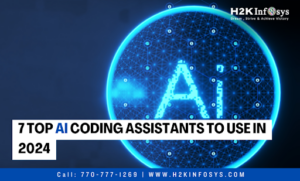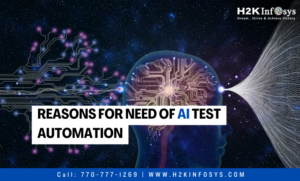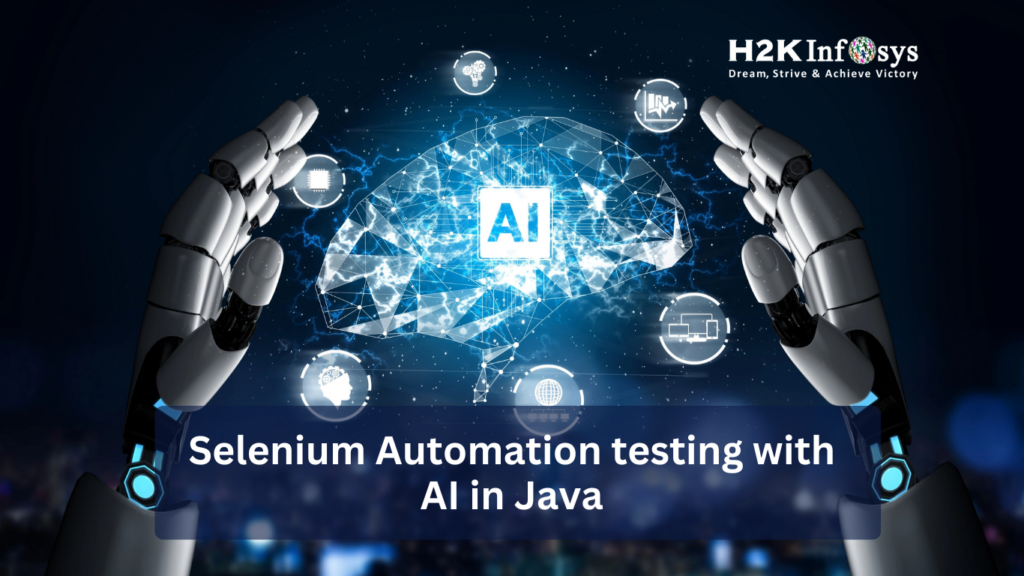Artificial intelligence has numerous advantages, such as chat support for brands with AI capabilities, search engine auto-search, smart predictions on e-commerce platforms, and more. Unfortunately, there are a lot of drawbacks to AI.
We might look at the disadvantages some other time, but below are the major advantages. To learn more about AI, check out our Artificial intelligence online course.
Advantages of Artificial Intelligence
1.Human Error Reduction
Artificial intelligence has been embraced in many fields because of this. Accurate results arise when human error is totally eliminated. The trick is to properly program.
When machines apply specific algorithm sets, they make accurate decisions based on the prior data that they have accumulated over time. As a result, there is a decrease in mistakes and an increase in accuracy.
Google, for example, released an update for the “Universal Speech Model (USM)”, an AI model that supports the thousand most common languages spoken worldwide.
This methodology has now succeeded in supporting more than 100 languages. It can now recognize speech automatically in under-resourced languages as well as popular ones (ASR). With this technology, human translation errors will now be reduced to almost zero.
2.Zero risks
AI was primarily introduced with the intention of replacing human labour with tasks that machines could perform more effectively or assist with in other ways. AI’s ability to lower risks related to specific tasks is one of its benefits. These jobs include everything from mining to space exploration to bomb defusing.
There are several locations on Earth and in space that are extremely hostile to humans and can endanger the lives of those who labour there. Here, AI-enabled devices can perform the task with extreme precision while lowering the risk to human life.
When human safety is at stake, using machines to complete tasks might be financially advantageous. For example, using technology to handle natural disasters can lead to a quicker recovery and less strain on human teams. In this regard, early warning systems used by artificial intelligence help detect natural disasters like earthquakes. This gives time to lessen the losses and facilitate a quicker evacuation for people.
3.24/7 accessibility
While creating deadlines for tasks, it is important to take into account human behaviour and the impact of fatigue. This is because a person’s maximal productivity is limited to three to four hours each day, and working longer than this causes them to become fatigued and lose focus, which ultimately lowers their production. Furthermore, people are not always available to complete tasks.
Conversely, an AI-enabled machine can consistently perform at the same degree of precision as a human worker.
Businesses can enhance customer experience by using Google’s Contact Center AI. This is a prime illustration of a helpline system powered by AI that allows companies to aggressively respond to consumer concerns and inquiries, resolving them quickly to enhance the customer experience.
In a similar vein, Amazon Lex, its chatbot created specifically for call centres, is capable of intelligent dialogue in response to human inquiries. It uses the same Amazon Alexa technology, which includes understanding the caller’s intent, posing pertinent follow-up questions, and offering solutions. These chatbots are always available, easily accommodating clients from all over the world and time zones.
4.Better Workflows
One of artificial intelligence’s numerous benefits is an increase in productivity in the workplace. The main causes of this are the time and money savings. When combined with the accuracy of contemporary AI, this results in a process that is better and more economical.
Better workflows have been made possible, for instance, by technologies like automatic voice recognition (ASR) and natural language processing (NLP). When transcripts become more widely available, the police department has been able to solve crimes by assisting the legal system or sifting through voluminous text material, like testimony, to locate evidence and hints. The departments’ overall workflow is aided by all these small changes.
5.Better Data Analysis
Finding patterns in large amounts of data can be an exhausting task. There’s always a chance of missing some patterns, or the analysis can’t be done thoroughly due to time and budgetary restrictions.
AI has an advantage in this situation since, with the right training, an algorithm may identify important patterns, disclose vital information, and even suggest solutions that aid in well-informed decision-making.
6.Solving highly complex problems with Quantum Computing
Many fundamental topics in physics, ranging from the origins of the universe to various aspects of fundamental physics, need highly computationally expensive molecular modelling. Integration with quantum computing may be the next big step for AI since it will provide the kind of computational power needed to tackle issues that have gone unsolved for decades.
Even with all of artificial intelligence’s benefits, there are still important considerations to make while using it.
7.Catalyst of inventions
The world has transformed with AI. The vision of AI, as it was envisioned in the 1960s, has come to reality. AI is at the core of many new inventions that have sprung from this. These recent innovations include things like self-driving automobiles and an expanding role for aircraft.
8.Enhanced assistance
AI has also been helpful to us on a number of occasions. This help has frequently taken the shape of chatbots that assist us in quickly solving our difficulties.
We can now complete tasks that formerly required a personal assistant thanks to various devices designed with voice assistance in mind. These consist of taking minutes during meetings, setting up and reminding us of meetings, among others.
Conclusion
To learn more Artificial Intelligence, you can check out our Artificial intelligence course with placement.






























